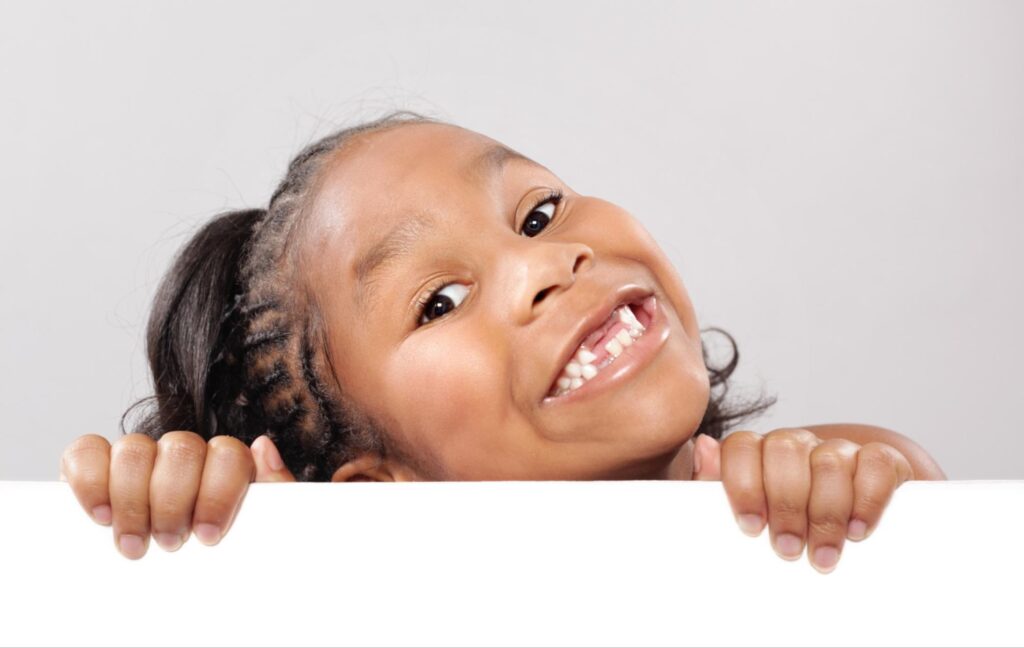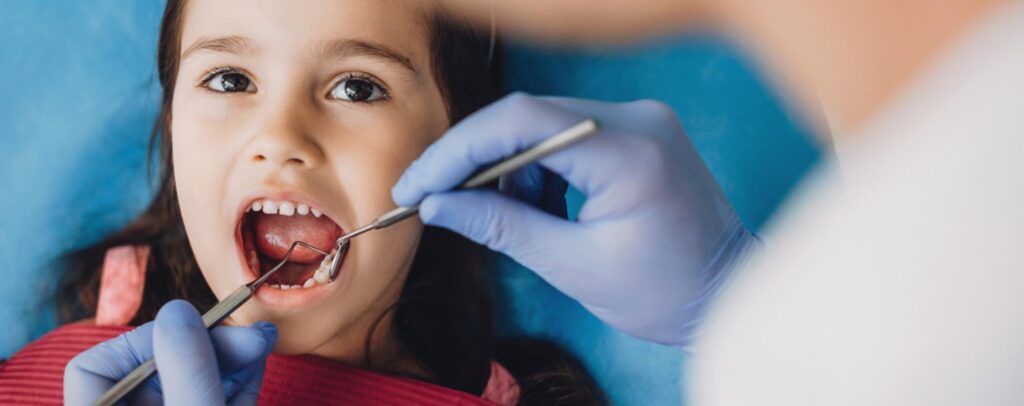
As new parents, a myriad of questions can arise about your child’s development, particularly regarding their dental health. One common query is whether baby teeth, also known as primary teeth, have roots.
Baby teeth do have roots. These roots anchor the teeth in the jawbone, but they gradually dissolve as the permanent teeth grow in, allowing the baby teeth to fall out.
As paediatric dentists, we can answer all your questions about your child’s teeth, how to take care of them properly, when to see us for your child’s first dental visit, and which dental services you may want to consider for your child. That can all start with learning more about baby teeth and what makes them distinct from adult teeth.
Anatomy of Baby Teeth
Baby teeth, like adult teeth, have roots. These roots anchor the teeth in the jawbone, allowing them to function effectively for chewing and speaking. The key components of a baby tooth are similar to those of an adult tooth, and include the following:
- crown: the visible part of the tooth above the gum line.
- root: the part of the tooth below the gum line that anchors it into the jawbone.
- pulp: the inner layer containing nerves and blood vessels.
- dentin: the layer beneath the enamel, providing structure and support.
- enamel: the hard, outer surface protecting the tooth from decay.
Adult Teeth Versus Baby Teeth
While baby teeth share many structural similarities with adult teeth, there are also notable differences. Learning about what makes baby teeth different and what makes them similar to adult teeth can help you effectively support your child’s oral health at home.
Similarities
Both baby and adult teeth have enamel, dentin, pulp, and roots. Both types of teeth are essential for chewing, speaking, and maintaining the structure of the jaw and face. Lastly, proper brushing, flossing, and regular dental checkups are necessary for both baby and adult teeth.
Differences
Baby teeth are generally smaller than adult teeth and differ in number. Children typically have 20 baby teeth, while adults have 32 permanent teeth.
The roots of baby teeth also dissolve naturally over time to allow the teeth to fall out, making way for permanent teeth. Baby teeth are temporary and typically start falling out around age 6, whereas adult teeth are meant to last a lifetime.
What Are the Roots in Baby Teeth For?
The roots in baby teeth keep the teeth firmly in place, allowing children to chew food properly and maintain their oral health. They also act as placeholders for permanent teeth, helping guide them into their correct positions.
What Happens to the Roots When Baby Teeth Fall Out?
When it is time for a baby tooth to fall out and make way for a permanent tooth, the root of the baby tooth gradually dissolves through a natural process called resorption. Special cells break down the root structure, allowing the tooth to become loose and eventually fall out. This usually starts around age 6 and continues until all baby teeth are replaced by permanent teeth, typically by age 12.

Dental Care for Baby Teeth
It is crucial to care for baby teeth properly, even though they will eventually fall out. Neglecting dental hygiene can lead to decay, infection, and other complications that may affect the underlying permanent teeth. Here are some tips for maintaining your child’s dental health:
Begin Brushing When Their Teeth First Appear
Begin brushing your child’s teeth as soon as the first tooth appears. Use a soft-bristled toothbrush and a small smear of toothpaste at first. Gently brush all surfaces of the teeth twice a day—morning and night—to remove plaque and food particles, making sure your child’s teeth stay clean and healthy.
Begin Flossing When Multiple Teeth Touch Each Other
Start flossing your child’s teeth when any 2 teeth begin to touch each other. Flossing helps remove food particles and plaque from between the teeth and under the gum line where a toothbrush cannot reach. Use a gentle sawing motion to avoid harming the gums, and make it a part of your child’s daily dental routine to promote optimal oral health.
Schedule Regular Visits with a Paediatric Dentist
Schedule your child’s first dental visit by their first birthday or within 6 months of the appearance of their first tooth. Early dental visits are important for assessing your child’s oral health, learning proper dental hygiene practices, and creating a path to future positive dental care experiences. Continue to schedule regular checkups every 6 months or at the frequency recommended by your paediatric dentist.
Help Your Child Eat a Healthy Diet
A healthy diet is vital for maintaining strong teeth and gums. Limit how many sugary snacks and drinks your child eats, including candies, cookies, sodas, and fruit juices. Instead, encourage your child to consume a balanced diet with healthy snacks like fruits and raw vegetables.
Additionally, encourage your child to drink water instead of other beverages. Drinking water helps rinse away food particles and bacteria from their mouth. Making water your drink of choice can also help reduce the effects that other beverages have on your child’s oral health.
Visit Us to Discuss Your Child’s Baby Teeth
At The Children’s Dental Centre, we are dedicated to ensuring your child’s smile is healthy and bright. Our team provides attentive care in a friendly and comfortable environment tailored specifically for young patients. From routine checkups to specific needs, we are here to guide you and your child through every stage of their dental development.
Contact us to schedule your next appointment—or your first appointment. Together, we can help your child’s bright smile last a lifetime.

